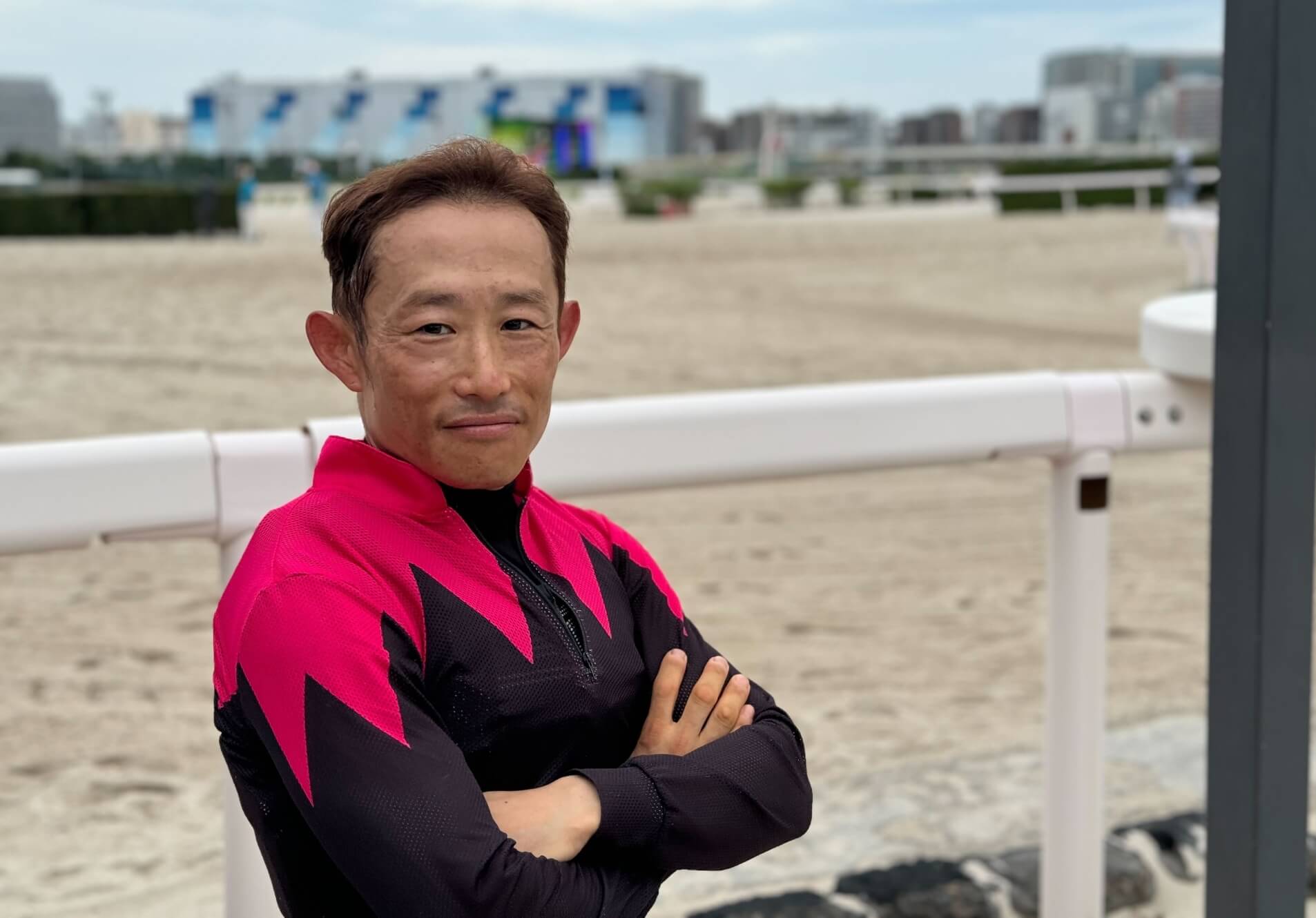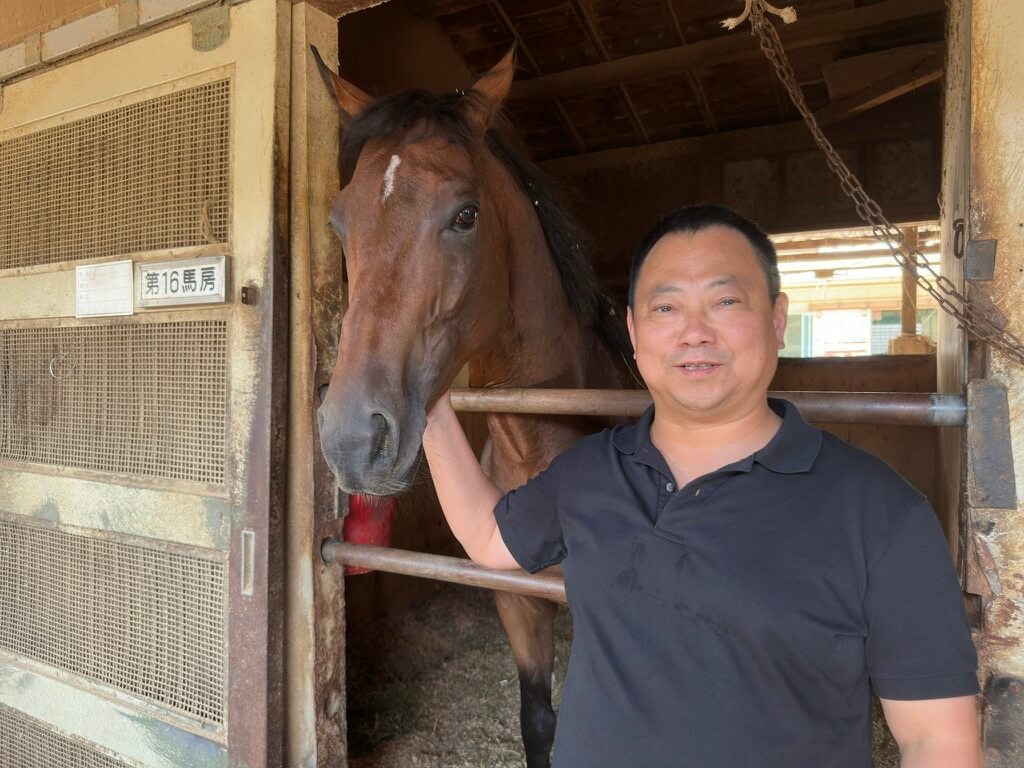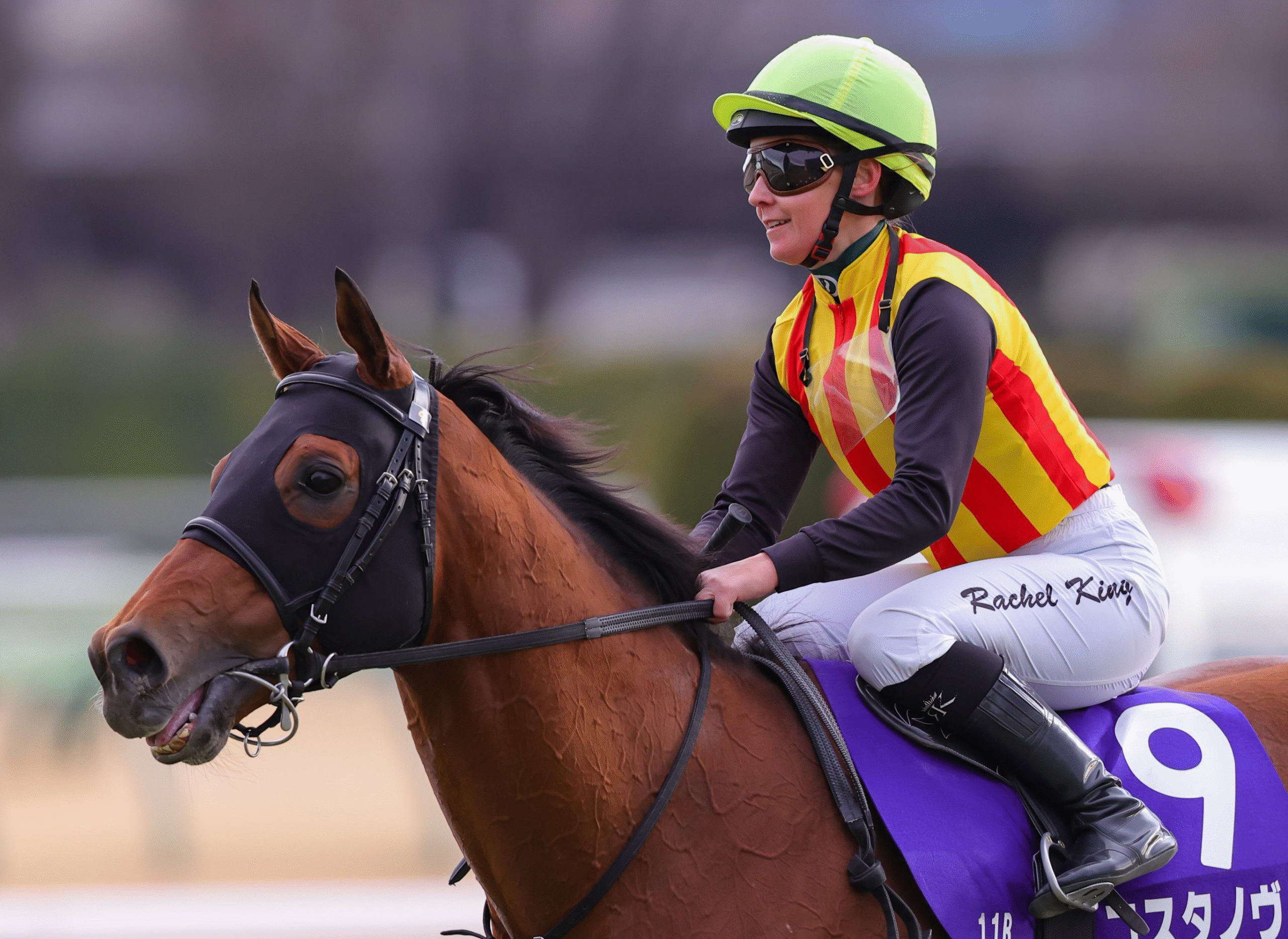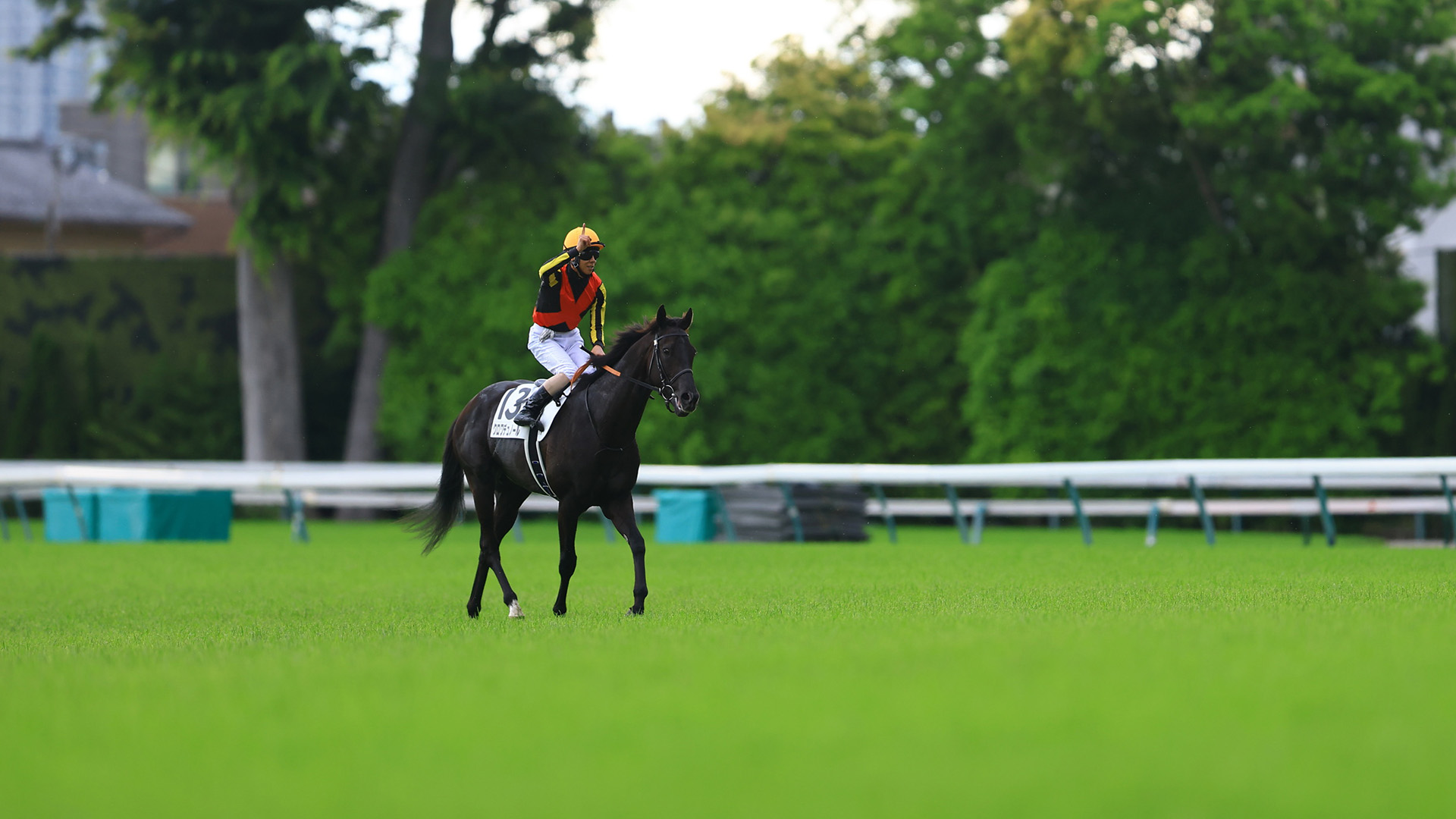Igniter Fires Up Sasagawa’s International Ambitions
Leading NAR jockey Tsubasa Sasagawa teams with Igniter again in the Riyadh Dirt Sprint, 11 months after an international awakening in the Dubai Golden Shaheen.
TSUBASA SASAGAWA was in position in gate one for the G1 Dubai Golden Shaheen, reins grasped and ready, so he thought: the white rail was to his left and 13 rival jockeys were lined up to his right. It was the biggest arena he had ever stepped into. UAE champion Tadhg O’Shea was beside him on the soon-to-be winner, Tuz, Cristian Demuro was beyond in gate three, and so on through a lineup that featured the huge names of Frankie Dettori, Ryan Moore, Christophe Lemaire, Yuga Kawada, Luis Saez, and Florent Geroux.
It was a whole different game to riding at the South Kanto region’s NAR (National Association of Racing) tracks on a weekday afternoon: on his home circuit he was one of the ‘name’ riders, a two-time champion at Oi racetrack, but that night at Meydan he was a little-known underdog.
His mount for the March, 2024 edition of Dubai’s top dirt track sprint was no leading light either. Igniter, a star of the NAR, had won the prestigious JPN G1 JBC Sprint under Sasagawa at Oi the previous November, but like his jockey he was hardly a known name outside of Japan.
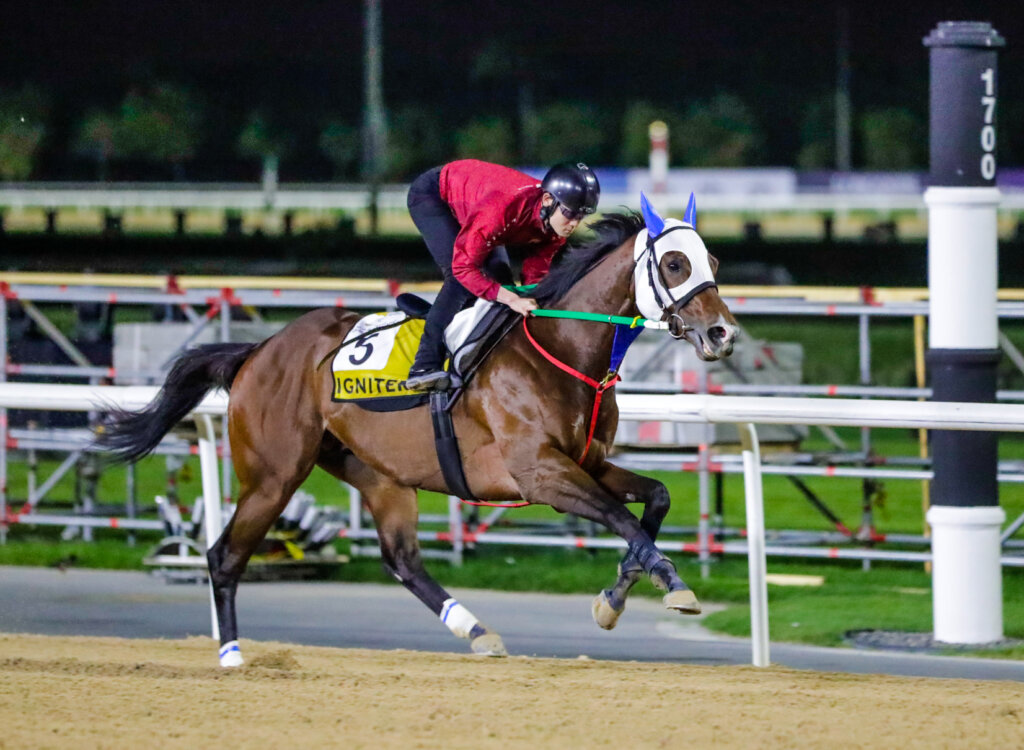
Sasagawa had spent time in France, for four rides, in 2016, and the month before he headed to Dubai he had ridden in Qatar for two weeks for a handful of rides. But this was an opportunity for Sasagawa, 30, to experience a long-established major international event and compete with the great riders of his time.
“In Dubai, there were top jockeys from all over the world,” he tells Idol Horse. “I started to observe them when they were in the jockeys’ room, and I felt they were really relaxed. On the way to the races, they looked really calm, and I felt those top jockeys with many big race experiences were really strong mentally.
“When they were riding in a race, they hardly hesitated, and I really learned a lot from them. It was quite emotional for me to be able to ride with those jockeys who I have been watching previously on TV and internet. Now I have a bigger dream: to become a jockey who can constantly ride with them together.”
Igniter was slower to break than his sharper rivals when the gates opened and Sasagawa’s arms were immediately working more than he’d anticipated. But the bay was soon in rhythm, rolling forward along the fence, vying for seventh in the run. Into the straight, Sasagawa was driving hard and Igniter found more; the jockey’s split-second shift around a fading runner impeded a couple of his rivals at the 250m point as the NAR pair moved to an almost glorious third; but that was the peak of their run and Igniter passed the post a commendable fifth.
“The horse tried really hard, and that made me feel I had to become much better than I was, especially looking back on my ride there,” Sasagawa admits.
“Nonetheless, I am really grateful for the horse and the connections who gave me a chance to ride there. Speaking of the result, the horse came really close to those world-class horses; he ran really well. I am grateful that I could ride a horse on this level, and I really want to get revenge somewhere.”
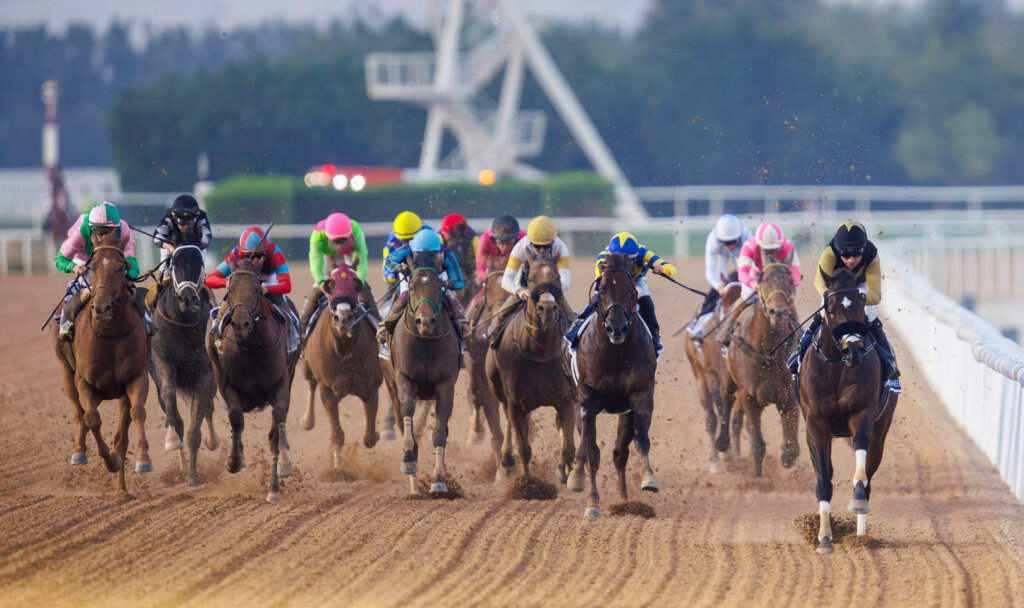
The Meydan stewards handed Sasagawa a four-meeting suspension for his shift across runners, and the rider takes that and the experience as a whole as evidence to himself that he must improve.
“I just felt I was still not good enough,” he says. “Even if I could win a lot of races here to become the leading jockey (in the South Kanto region), when I went abroad, I was just a nobody compared to all those top jockeys. Instead of being satisfied with my achievements here, I felt I really wanted to improve my riding skill.”
In that vein, Sasagwa’s main goal in his career is not pinpointed to nailing a specific achievement, or one iconic race, it is continuous self-improvement that he hopes will take him to that world stage more often. Indeed, riding at one of the world’s most famous racetracks on a Group 1 card worth millions of dollars has ignited his ambitions.
“Instead of big goals, I just want to ride out every mount well,” he says. “I want to become a jockey who can understand what is best for each individual horse, and I believe if I can do that I will be the leading jockey again, naturally. I don’t think one can be satisfied after becoming a leading jockey just once, and I think the next ten years are my peak for riding. I want to do everything I can right now.”
Sasagawa was the South Kanto region’s champion jockey for the first time in 2023 with 311 wins; by July 2024 he reached 2,000 career wins, a mark he achieved faster than any other jockey ever affiliated to Oi’s Tokyo City Keiba. But he has seen what is out there, beyond the NAR, or even the JRA, he knows now what world class competition looks and feels like.
“I want to go out again,” he says. “By riding in the big race in Dubai, I have learned a lot, and now I understand what I must do in such a situation. From this perspective, I want to get revenge just like I said before. I hope someday I can meet another good horse and challenge the world again.”
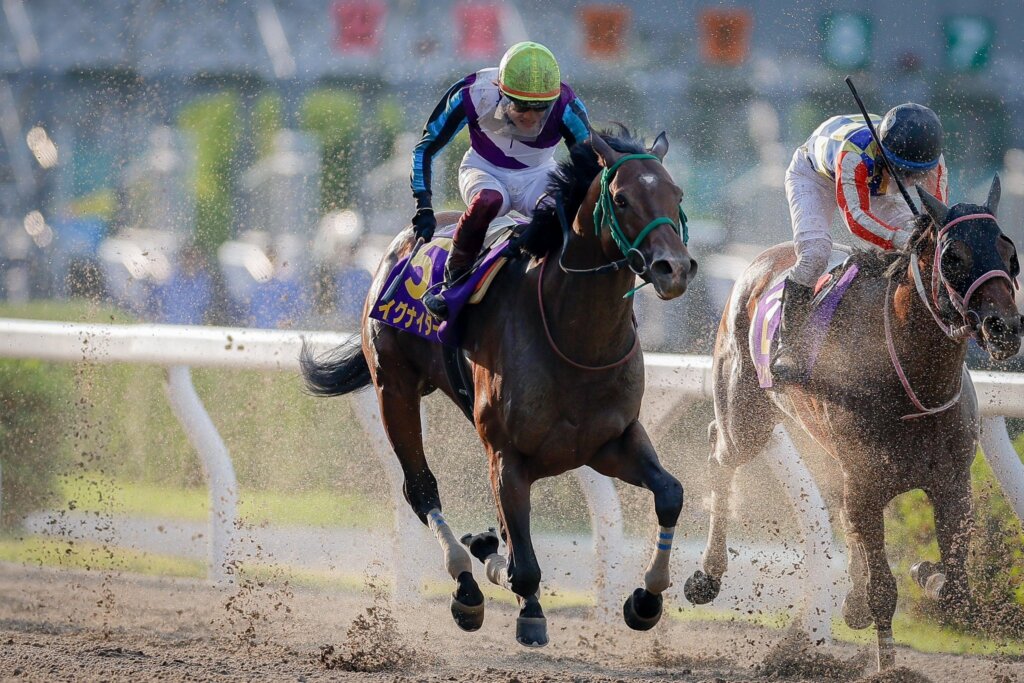
Sasagawa returns to the world stage 11 months on, with Igniter again, this time in the G2 Riyadh Dirt Sprint at King Abdulaziz Racecourse. He heads into that US$2 million contest with 40 NAR wins for the year so far, having ridden 269 winners on the circuit in 2024; his lifetime record stands at 2,163 wins from 16,018 NAR rides.
His career is very much thanks to his grandfather, the former jockey Yoshimatsu Konomura, a top jockey at Niigata racecourse in the 1970s when it still held NAR races. After retirement, Konomura worked for Symboli Farm where he broke the great Triple Crown winner Symboli Rudolf as a yearling, and later worked as farm manager for Shigeyuki Nishiyama’s Nishino Farm.
“A lot of people ask me why I wanted to become a jockey, but I already wanted to become a jockey before I could remember things,” Sasagawa says. “What I can say is, if my grandfather wasn’t there, I wouldn’t even know that people can become jockeys. So, I am really grateful to him. And after I became a jockey, Mr. Shigeyuki Nishiyama gave me a lot of good mounts, so I am grateful to him as well. Without their support I could not become who I am nowadays, so I really want to return the favour to them.
“Instead of being a dream, becoming a jockey felt like a certainty to me, so I didn’t have any other dreams. When I went to my grandpa’s house, I would watch horse racing the whole evening: it just felt unbelievable that I would be competing in those races one day.”
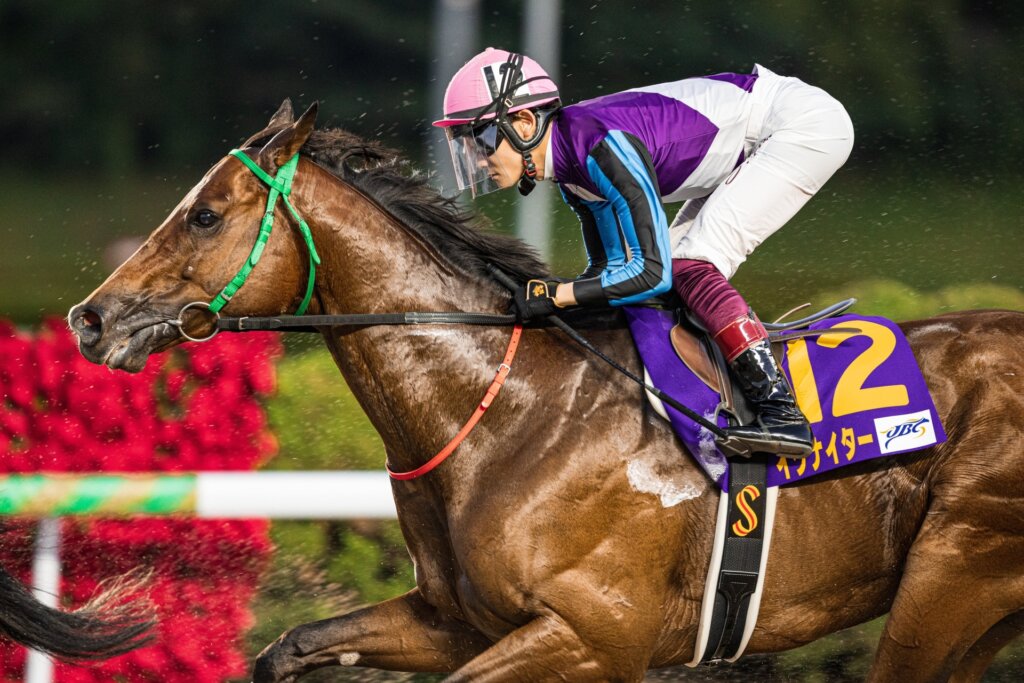
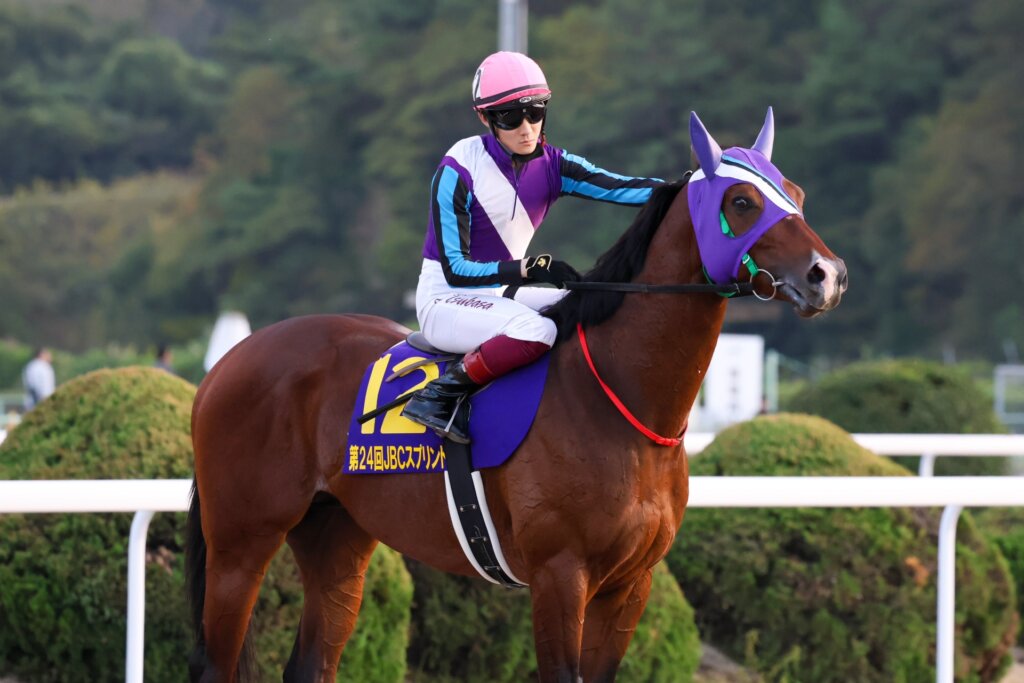
Sasagawa tried and twice failed to pass the JRA (Japan Racing Association) jockey test, which would have put him on Japan’s elite circuit, but instead joined the NAR school and was licensed in March 2013, ending that year with the NAR’s outstanding rookie award as the top apprentice.
He has since established himself as one of the NAR’s leading jockeys, with a host of big race wins to his credit. But his experiences in the Middle East have opened up a new vista in terms of the opportunities international racing offers and the things he can learn from riding against the very best.
“I have been riding in a few countries, and every country is different in their horse culture and the way of approaching horses,” he says. “I try to see those and learn, analysing what I can do and can’t do, and absorb them.
“One thing I feel quite a lot is that as I ride in South Kanto day after day, I start to feel a little bit insular. When I go out to the world and see the horse racing there with broader eyesight, I can feel how big the world is, and I am far from catching up with the world.
“This is the best thing for me, to go abroad, because when I come back to Japan, I always feel I want to be a better jockey, and I want to win more,” he adds. “No matter what country I go to, I feel the same way.” ∎



